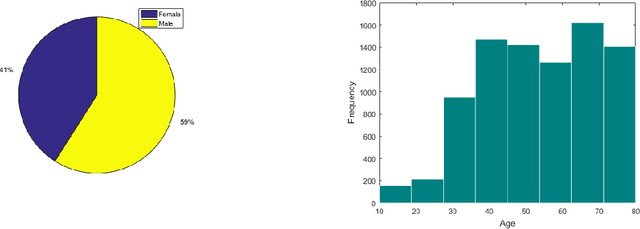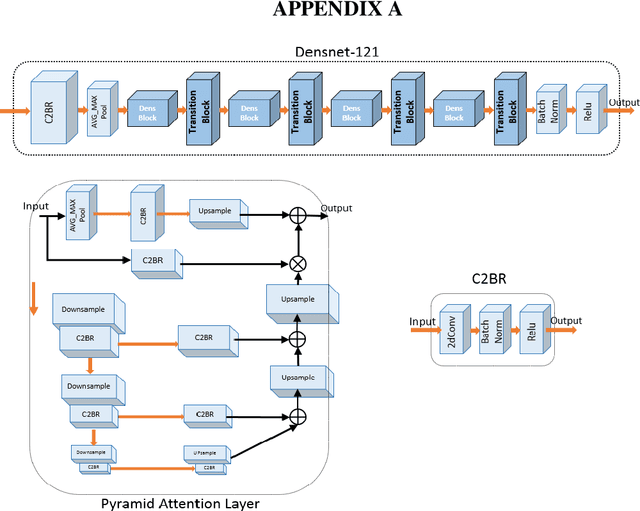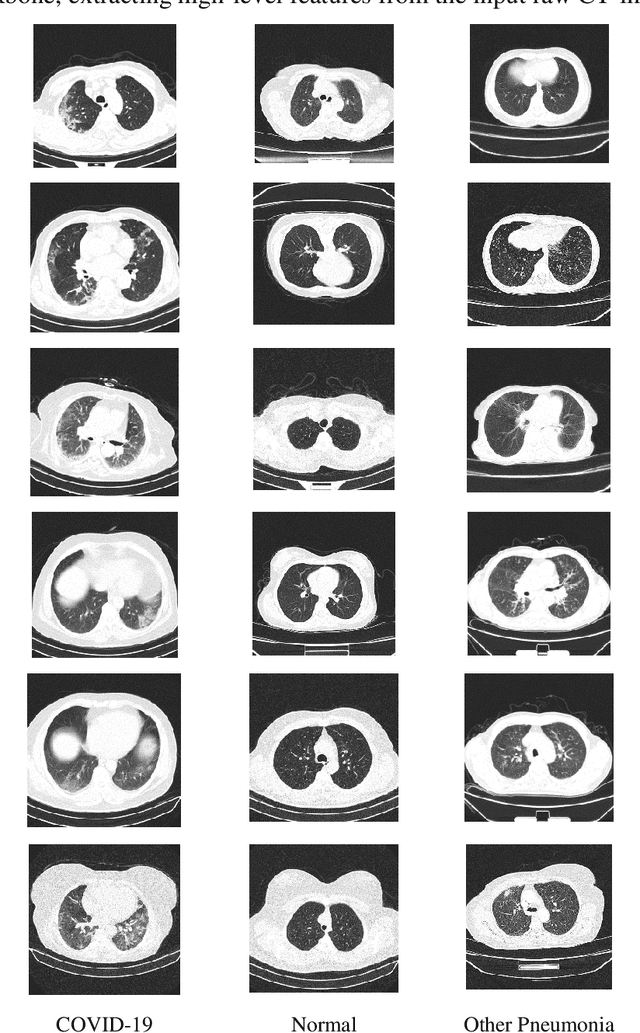Amir Reza Radmard
Screening COVID-19 Based on CT/CXR Images & Building a Publicly Available CT-scan Dataset of COVID-19
Dec 29, 2020



Abstract:The rapid outbreak of COVID-19 threatens humans life all around the world. Due to insufficient diagnostic infrastructures, developing an accurate, efficient, inexpensive, and quick diagnostic tool is of great importance. As chest radiography, such as chest X-ray (CXR) and CT computed tomography (CT), is a possible way for screening COVID-19, developing an automatic image classification tool is immensely helpful for detecting the patients with COVID-19. To date, researchers have proposed several different screening methods; however, none of them could achieve a reliable and highly sensitive performance yet. The main drawbacks of current methods are the lack of having enough training data, low generalization performance, and a high rate of false-positive detection. To tackle such limitations, this study firstly builds a large-size publicly available CT-scan dataset, consisting of more than 13k CT-images of more than 1000 individuals, in which 8k images are taken from 500 patients infected with COVID-19. Secondly, we propose a deep learning model for screening COVID-19 using our proposed CT dataset and report the baseline results. Finally, we extend the proposed CT model for screening COVID-19 from CXR images using a transfer learning approach. The experimental results show that the proposed CT and CXR methods achieve the AUC scores of 0.886 and 0.984 respectively.
CovidCTNet: An Open-Source Deep Learning Approach to Identify Covid-19 Using CT Image
May 16, 2020Abstract:Coronavirus disease 2019 (Covid-19) is highly contagious with limited treatment options. Early and accurate diagnosis of Covid-19 is crucial in reducing the spread of the disease and its accompanied mortality. Currently, detection by reverse transcriptase polymerase chain reaction (RT-PCR) is the gold standard of outpatient and inpatient detection of Covid-19. RT-PCR is a rapid method, however, its accuracy in detection is only ~70-75%. Another approved strategy is computed tomography (CT) imaging. CT imaging has a much higher sensitivity of ~80-98%, but similar accuracy of 70%. To enhance the accuracy of CT imaging detection, we developed an open-source set of algorithms called CovidCTNet that successfully differentiates Covid-19 from community-acquired pneumonia (CAP) and other lung diseases. CovidCTNet increases the accuracy of CT imaging detection to 90% compared to radiologists (70%). The model is designed to work with heterogeneous and small sample sizes independent of the CT imaging hardware. In order to facilitate the detection of Covid-19 globally and assist radiologists and physicians in the screening process, we are releasing all algorithms and parametric details in an open-source format. Open-source sharing of our CovidCTNet enables developers to rapidly improve and optimize services, while preserving user privacy and data ownership.
 Add to Chrome
Add to Chrome Add to Firefox
Add to Firefox Add to Edge
Add to Edge